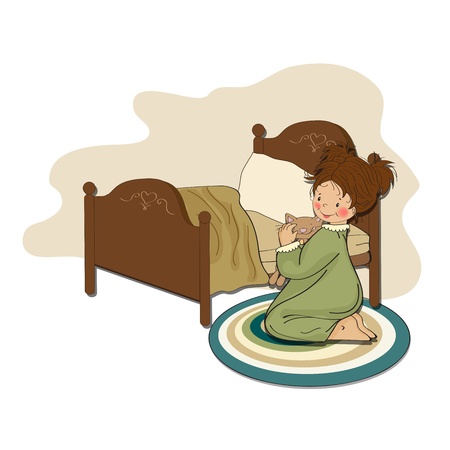Understanding Postpartum Recovery
Welcoming a new baby is an incredible experience, but it also brings significant changes to a mother’s body and mind. After childbirth, new moms undergo a period known as postpartum recovery, which involves both physical and emotional adjustments. Physically, women may experience soreness, fatigue, hormonal shifts, and changes in their bodies as they heal from labor and delivery. Emotionally, it’s common to feel a mix of joy, anxiety, and even sadness as hormone levels fluctuate and the demands of newborn care set in. Proper postpartum recovery is crucial because it supports overall well-being and enables moms to care for themselves and their babies more effectively. Recognizing these changes and addressing them with the right resources can make this transition smoother and more comfortable for new mothers.
2. Navigating the Breastfeeding Journey
Breastfeeding is a unique experience for every mom, filled with both challenges and rewards. While it offers incredible benefits for both mother and baby—including essential nutrients, immune system support, and bonding—it can also come with a steep learning curve. Many American moms find themselves facing common hurdles such as latching difficulties, nipple discomfort, and concerns about milk supply. These initial struggles are normal, but with patience and the right support, they can be overcome.
Common Breastfeeding Challenges and Rewards
| Challenges | Rewards |
|---|---|
| Sore nipples | Stronger mother-baby bond |
| Latching issues | Optimal nutrition for baby |
| Low milk supply worries | Lower risk of certain illnesses for baby |
| Pumping at work or on-the-go | Health benefits for mom (e.g., reduced risk of some cancers) |
| Nursing in public anxiety | Cost savings—no need to buy formula |
Tips for Getting Started with Confidence
- Seek Support Early: Reach out to a lactation consultant or local breastfeeding group. Many hospitals offer free resources and classes for new moms.
- Create a Comfortable Space: Set up a cozy nursing station at home with supportive pillows, snacks, water, and entertainment to make feeding sessions more enjoyable.
- Practice Makes Perfect: Don’t stress if things aren’t perfect right away. Frequent practice helps both mom and baby learn together.
- Take Care of Yourself: Make sure you’re eating well, staying hydrated, and resting when possible—your well-being matters!
- Embrace Flexibility: Every breastfeeding journey is different. Adjust your routine as needed and don’t hesitate to ask for help.
Building Your Confidence as a New Mom
If you ever feel overwhelmed or doubt yourself, remember that many moms have been in your shoes. Celebrate small victories—like a successful latch or an extra ounce pumped—and remind yourself that you’re doing an amazing job. With time, practice, and the right support network, breastfeeding can become a rewarding part of your postpartum recovery.

3. Must-Have Products for Postpartum Comfort
Recovering from childbirth is a unique journey for every mom, but having the right products can make a world of difference in your comfort and healing process. Here are some essentials that American moms swear by during postpartum recovery:
Maternity Pads
One of the first items you’ll want on hand are high-absorbency maternity pads. Unlike regular menstrual pads, these are designed to handle the heavier flow that often occurs after delivery. They’re soft, gentle on sensitive skin, and help keep you dry and comfortable as your body heals.
Peri Bottles
A peri bottle might seem simple, but it’s a lifesaver when it comes to keeping things clean and minimizing discomfort after using the bathroom. Fill it with warm water and gently rinse to reduce irritation, especially if you have stitches or are dealing with soreness. Many hospitals provide one, but having an extra at home is always helpful.
Sitz Baths
Sitz baths offer soothing relief for perineal pain or swelling. By soaking in warm water—sometimes with added Epsom salts—you can ease discomfort and promote healing. There are affordable sitz bath kits made to fit right over your toilet seat, making them convenient for daily use during recovery.
Comfortable Loungewear
Don’t underestimate the power of comfortable clothing! Soft, loose-fitting loungewear or pajamas with easy nursing access are invaluable in those early weeks. Look for breathable fabrics like cotton or bamboo that won’t irritate sensitive skin, and choose styles that allow for both comfort and practicality as you care for your newborn.
Why These Essentials Matter
Each of these products supports a smoother postpartum experience by addressing common challenges—from managing bleeding and promoting hygiene to reducing soreness and helping you relax at home. Stocking up on these must-haves ahead of time means more peace of mind so you can focus on bonding with your baby and taking care of yourself during this special transition.
4. Essential Breastfeeding Supplies for Moms
Breastfeeding can be a rewarding but sometimes challenging journey for new moms. The right supplies not only make the process more comfortable but also support successful breastfeeding experiences. Here’s a look at some of the most practical and popular items every breastfeeding mom should consider:
| Product | Purpose | Why Moms Love It |
|---|---|---|
| Nursing Bras | Provide easy access for feeding and extra support for changing breast size. | Soft, seamless designs prevent irritation; convenient clasps make night feedings easier. |
| Nipple Creams | Soothe sore or cracked nipples that can occur in the early weeks. | Natural, lanolin-based creams are safe for baby and help moms heal quickly. |
| Breast Pumps | Allow moms to express milk, build up a freezer stash, or share feeding duties with partners. | Electric pumps save time; manual pumps are portable and budget-friendly. |
| Nursing Pillows | Provide ergonomic support for both mom and baby during feedings. | C-shaped pillows lift baby to the right height, reducing strain on mom’s back and arms. |
Nursing bras are a must-have from day one. They’re designed for comfort and practicality, with stretchy fabrics and easy-to-use clips. Nipple creams, especially those made from all-natural ingredients like lanolin, provide much-needed relief during those first few weeks when nipples can become dry or irritated. For moms who plan to pump, investing in a reliable breast pump—whether electric for daily use or manual for occasional needs—can make all the difference in maintaining supply and flexibility. Lastly, nursing pillows offer crucial support by positioning your baby correctly, which not only helps latch but also reduces fatigue during marathon feeding sessions. Stocking up on these essentials ensures a smoother, more comfortable breastfeeding journey for both mom and baby.
5. Self-Care Tips and Support Resources
Taking care of yourself is just as important as caring for your newborn during postpartum recovery and breastfeeding. Prioritizing self-care helps you maintain energy, manage stress, and support your physical and emotional well-being.
Strategies for Self-Care
Make time for rest whenever possible, even if it means napping while your baby sleeps. Eating balanced meals, staying hydrated, and taking gentle walks can all contribute to your recovery. Don’t hesitate to ask for help with household chores or baby care from your partner, family, or friends—remember, you don’t have to do everything alone.
Managing Stress
It’s normal to feel overwhelmed at times. Deep breathing exercises, mindfulness practices, or journaling can help calm your mind. Carving out a few moments each day just for yourself—whether it’s enjoying a cup of coffee, reading a book, or listening to music—can make a big difference in how you feel.
Accessing Community Support
You’re not alone on this journey. Lactation consultants can offer invaluable advice and troubleshooting for breastfeeding challenges, either through in-person appointments or virtual consultations. Joining local mom groups or online communities provides an opportunity to share experiences, ask questions, and receive encouragement from others who understand what you’re going through.
When to Seek Additional Help
If you experience persistent sadness, anxiety, or difficulty coping with daily tasks, reach out to your healthcare provider. Postpartum mental health is just as important as physical recovery—support is available, and asking for help is a sign of strength.
6. When to Seek Medical Advice
While most postpartum recovery and breastfeeding experiences can be managed at home with the right products and support, it’s important for moms to know when professional help is needed. Recognizing early signs that something isn’t quite right can make a big difference for both your health and your baby’s well-being.
Signs During Postpartum Recovery
If you notice excessive bleeding (soaking through more than one pad an hour), large blood clots, persistent or severe pain not relieved by over-the-counter medication, fever over 100.4°F (38°C), foul-smelling vaginal discharge, or signs of infection at your incision or tear site, reach out to your healthcare provider right away. Severe mood swings, feelings of hopelessness, or difficulty bonding with your baby can also indicate postpartum depression or anxiety that deserves immediate attention.
When Breastfeeding Challenges Need Expert Support
Breastfeeding should not be unbearably painful. If you experience cracked, bleeding nipples; ongoing nipple pain; a sudden red, hot, and swollen area on your breast (possible mastitis); fever; chills; or flu-like symptoms, contact a lactation consultant or your doctor. Additionally, if your baby has trouble latching, seems unsatisfied after feedings, has fewer than six wet diapers per day after day five, shows poor weight gain, or appears lethargic, it’s time to consult a pediatrician or lactation expert.
Trust Your Instincts
You know your body and your baby best. If anything feels off—physically or emotionally—don’t hesitate to seek advice from professionals who specialize in postpartum care and infant feeding. Timely intervention can prevent minor issues from becoming serious concerns and ensure a smoother recovery for both mom and baby.
Resources for Support
In the United States, there are many resources available: OB/GYNs, family doctors, pediatricians, hospital lactation consultants, local breastfeeding support groups like La Leche League, and national hotlines such as the National Breastfeeding Helpline (1-800-994-9662). Don’t be afraid to reach out—you’re not alone on this journey.


